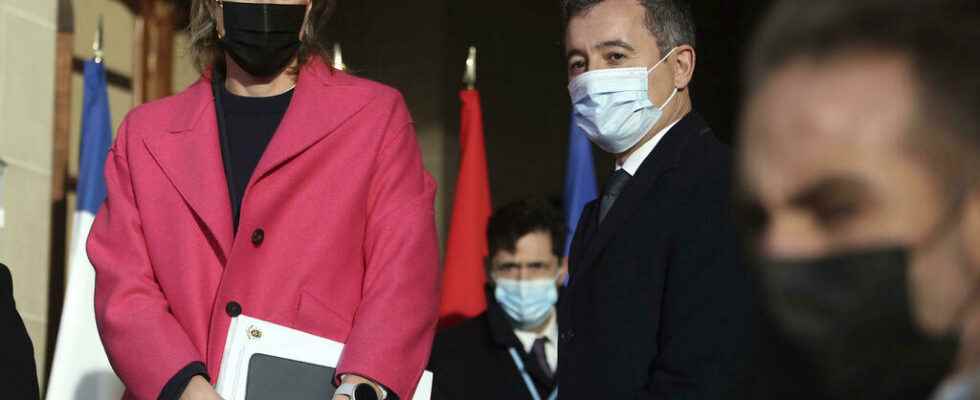After the deadly shipwreck that occurred this week in the English Channel, a meeting devoted to migration issues was held in Calais on Sunday, November 28, around the French Minister of the Interior Gerald Darmanin. The British, initially invited to this meeting also bringing together Belgian, German, Dutch, Europol and Frontex delegations, were not invited. The stated objective is to step up the fight against smuggling networks at this new EU border.
The French Minister of the Interior insisted, as announced, on the fight against smuggling networks. The exchange of information will be further increased between participating countries, reports our special correspondent in Calais, Juliette Gheerbrant.
Concrete actions will, for example, target the delivery of boats or engines, in cooperation with Turkey and China, from which this material comes, said Gerald Darmanin.
Another concrete announcement: a Frontex plane flying day and night over the northern coast of France to the Netherlands, to spot the departures of boats and smugglers. This part of the territory has in fact become an external border of the European Union since Brexit.
From December 1, this Frontex plane will help us very much to see the networks of smugglers, to see the crossings and to prevent them as early as possible.
Gérald Darmanin, French Minister of the Interior
It is therefore a regional cooperation that is taking place. Gérald Darmanin also welcomed the fact that direct discussions between the EU and the United Kingdom are opening on this subject, an announcement made by the European Commissioner.
For Ylva Johansson, the Calais meeting demonstrated the need for the 27 to finally adopt the new pact for immigration and asylum, notes our correspondent in Brussels, Pierre Benazet. The European Commission made the proposal in September 2020 and its adoption is slipping on issues that are at the heart of the migrant crisis to England. For her, a suitable process is needed to filter and register migrants, to prevent their arrival as far as the Channel coast.
We cannot wait even longer to strengthen ourselves, to work together, to collaborate at the level of the police, at the level of justice (…) at the European level.
Sammy Mahdi, Belgian Secretary of State for Asylum and Migration
German Secretary of State Stephan Mayer has also advocated urgently seeking an agreement with the United Kingdom to determine to which country to assign responsibility for processing asylum applications.
Not a word on the question of the Dublin Regulation, on the sharing of the reception, in short on a global European migration policy always announced always awaited. These are all themes that echo those that have torn the countries of the European Union apart since the outbreak of the migrant crisis in 2015, against the backdrop of calls from Mediterranean countries for European solidarity. A solidarity to which the Poles and the Balts will now be more sensitive.
►Read again: A meeting on migrants in Calais without the United Kingdom, symbol of post-Brexit
During this time, associations were kept away from the town hall. Pierre Roques, coordinator of L’auberge des migrants, denounces counterproductive measures. “ With the militarization of these borders, the only solution of the exiled people who want to cross, is to put their destiny in the hands of the smugglers. The more police there are, the more smugglers there are. Militarization mathematically increases the number of passages and smugglers, and therefore the number of tragedies. We try to remain optimistic but when we see the proposed measures, which are completely out of the ground and do not respond at all to the humanitarian problem, we do not see how to avoid other tragedies. “
Throughout the meeting, people from Calais have demonstrated to express their exasperation and their opposition to a migration policy that they describe as murderous. At the end of the day, some were able to approach the town hall, demonstrating in front of the square with cries of ” assassins », Recalling that the migrants would continue to sail.
Calais women and men do not want to carry the weight of these victims on their shoulders. And since they are people of solidarity, they are very affected by what has just happened
Natacha Bouchart, Mayor of Calais and Vice-President of the Hauts-de-France (LR) region
